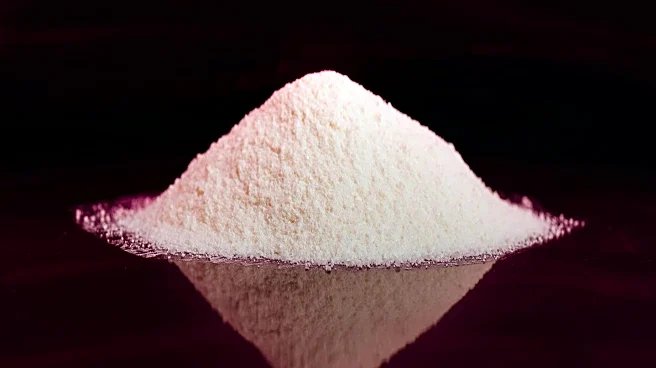What's Happening?
Following Consumer Reports' findings of high lead levels in protein supplements, industry groups have responded, challenging the report's conclusions. The Natural Products Association criticized the report as
alarmist, arguing that trace amounts of heavy metals are naturally occurring and pose minimal risk. Huel, one of the companies named in the report, stated that its products meet NSF standards, which differ from Consumer Reports' thresholds. The industry emphasizes the need for context and alignment with federal benchmarks to avoid overstating risks.
Why It's Important?
The industry's response highlights the ongoing debate over safety standards and regulatory oversight in the dietary supplement market. While Consumer Reports calls for stricter regulations, industry groups argue for a balanced approach that considers natural occurrences of heavy metals. This debate underscores the challenges in establishing universally accepted safety standards and the potential impact on consumer trust and industry practices.
What's Next?
The controversy may lead to increased scrutiny of safety standards and testing methodologies in the supplement industry. Regulatory bodies may consider revising guidelines to address consumer safety concerns. Manufacturers might face pressure to improve transparency and quality control measures to align with consumer expectations.
Beyond the Headlines
The response from industry groups highlights the complexities of regulating naturally occurring substances in food products. It raises questions about the balance between consumer safety and practical industry standards, as well as the role of scientific research in shaping public policy.









